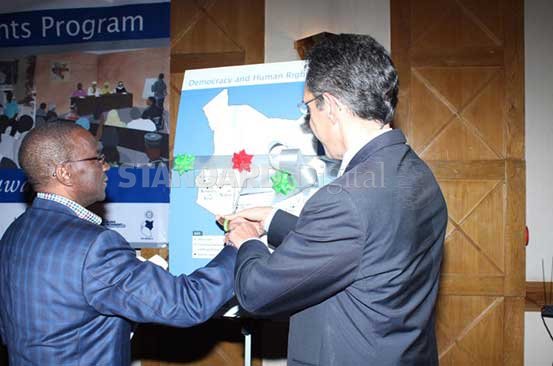×
The Standard e-Paper
Home To Bold Columnists

NAIROBI: Politicians, religious and civil society leaders have warned that the country could be thrown into violent conflict of the 2007-2008 post-election violence magnitude if runaway corruption is not tamed.
Speaking at The Hotel Intercontinental in Nairobi, Chief Justice Dr Willy Mutunga warned that the country needs an urgent intervention to deal with the myriad of grave challenges it was facing.